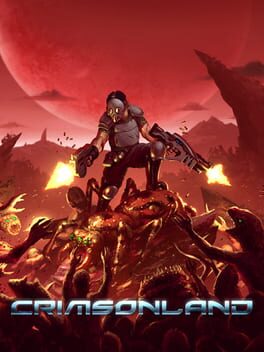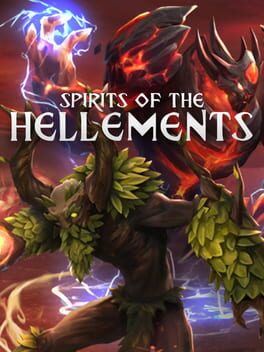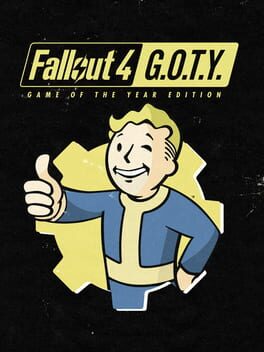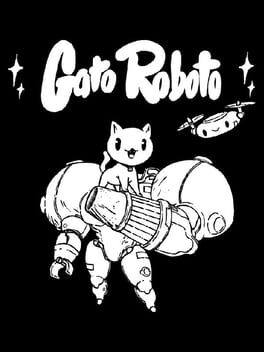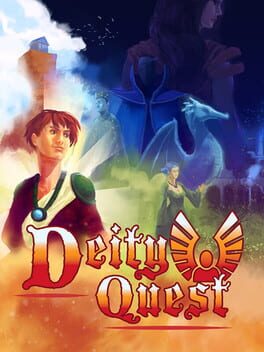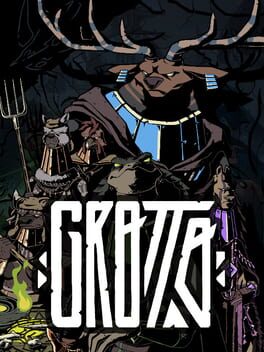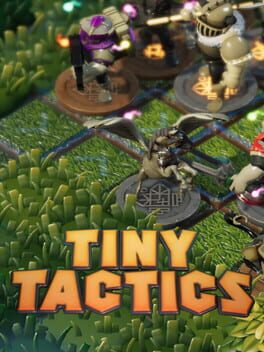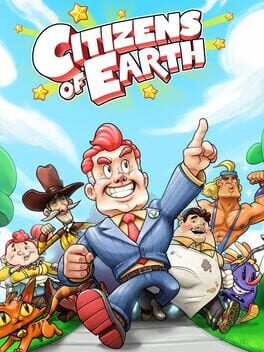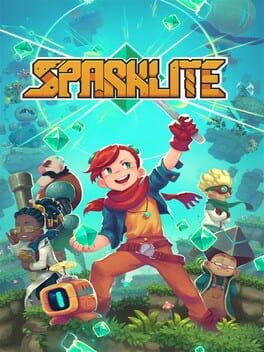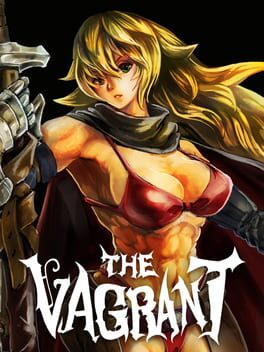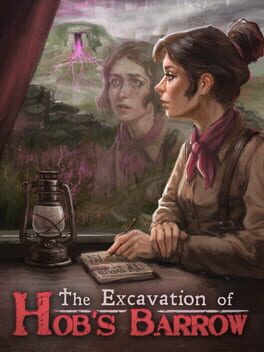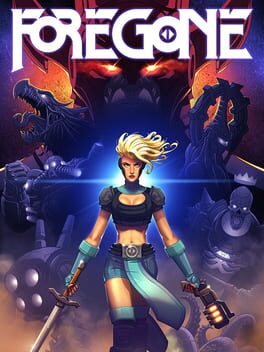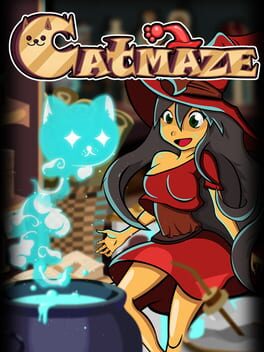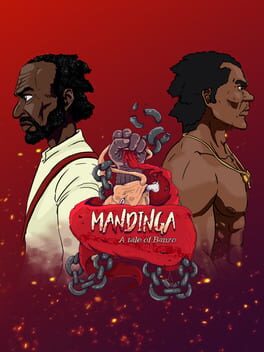jademonkey
2014
All of the Vampire Survivor and off shoot games inspired me to play through Crimsonland for the first time in nearly 20 years. I think there are better options for twin-stick shooters and arena survival games these days (many of them by Crimsonland's creators!) but it's still a solid experience and the nostalgia hits hard. None of the more modern games I've played focus so heavily on limited-time power ups, so it still has an enjoyable, frantic style all its own.
I'll probably chip away at the hardcore levels and survival mode achievements here and there for a while yet.
I'll probably chip away at the hardcore levels and survival mode achievements here and there for a while yet.
At about 30 hours in, my interest is started to wane and I just focused down the main story. I enjoyed my time with Fallout 4 and think it's one of the better Bethesda games in terms of game feel and writing. There's just a lot less gameplay variety than in the Elder Scrolls games, since you're not really getting much in the way of gameplay changing abilities. I live on variety, so it's hard to keep interest in something that is static gameplay-wise for too long.
2019
This here is a totally decent game. It's very much on the Metroid side of the metroidvania-spectrum. That's the side I don't like as much! Serviceable map, cute kitty, fun upgrades, overall ok gameplay.
The mech is fun enough to control. It's mildly slippy, there's substantial movement recoil from firing rockets, and the powerups can allow for some real zip-zooping around.
The cat out of the mech is terrible. Very highly slippy, but somehow sticky on walls. You die in one hit when out of the mech. Honestly, it's one of the worst things ever, but the game is short and you're only in cat form for a smallish (but far too large) portion.
The story is surprisingly satisfying for a short 3-3.5 hour romp about a cat in a mech suit. Which is to say, nothing groundbreaking, but it made me smile and I felt it concluded well.
Conclusion of the review: I don't regret spending 3 bucks and 3 hours on this game and you probably won't either if you enjoy metroidvanias.
The mech is fun enough to control. It's mildly slippy, there's substantial movement recoil from firing rockets, and the powerups can allow for some real zip-zooping around.
The cat out of the mech is terrible. Very highly slippy, but somehow sticky on walls. You die in one hit when out of the mech. Honestly, it's one of the worst things ever, but the game is short and you're only in cat form for a smallish (but far too large) portion.
The story is surprisingly satisfying for a short 3-3.5 hour romp about a cat in a mech suit. Which is to say, nothing groundbreaking, but it made me smile and I felt it concluded well.
Conclusion of the review: I don't regret spending 3 bucks and 3 hours on this game and you probably won't either if you enjoy metroidvanias.
2015
I had the hankering for a good monster tamer, but wasn't really feeling any of the big name titles. So, I decided to do some deep diving on Steam and found Deity Quest.
In Deity Quest, you are, as the name implies, a deity. And you're on a quest! That quest being to become the Overgod of the world you are assigned to out of Deity School. Of course, you have a snarky rival and there are some ~twists~. Really, there's not a whole lot to the story, but it was enough to hold things together, and that's really all that's needed here.
As a deity, you need followers. This is where the 'monster taming' elements come in, with a 128 follower types to recruit ranging from Jellyfish to Elves to Angels. Most of the major fantasy tropes are represented. Of course, as any good Deity would, you make your followers fight in battles constantly. These battles are 6v6, and are most easily described as Darkest Dungeons if it were an autobattler. The units essentially form a giant line, and every offensive move has a range determining how far away it can hit. If the unit is too far back in your line, they may not even be able to use their offensive moves. You additionally have divine spells you can toss out to influence the battles. I found it enjoyable, though I like autobattlers in general.
Deity Quest has the overall vibe of being Siralim's younger sibling. You're going to procedural generated areas and getting little bits of story between, and there's a surprising amount of customizability for your monsters, but there's just less of everything and what's there is less complex. Which is fine, since Siralim (Ultimate especially) probably has too much.
The graphics, sound, and user interface all achieve the level of functional. The developers purchased the same tileset as Dungeon Crawl Stone Soup, which I was amused by. The UI was clearly developed with mobile compatibility in mind and further ended up feeling like something out of a 90s game, with several core features hidden in somewhat odd places. I enjoyed the main battle toon, which is good, since you'll spend much of the play time listening to it. Some rather common spells shared sound effects, which could get grating over time.
Overall, Deity Quest satisfied my urge to play a monster tamer that didn't feel like Pokemon or SMT. It wasn't amazing, and maybe not even good, but I had fun with it. Worth a look for people into grindy autobattlers and monster taming, but it's not going to be winning either genre new converts.
In Deity Quest, you are, as the name implies, a deity. And you're on a quest! That quest being to become the Overgod of the world you are assigned to out of Deity School. Of course, you have a snarky rival and there are some ~twists~. Really, there's not a whole lot to the story, but it was enough to hold things together, and that's really all that's needed here.
As a deity, you need followers. This is where the 'monster taming' elements come in, with a 128 follower types to recruit ranging from Jellyfish to Elves to Angels. Most of the major fantasy tropes are represented. Of course, as any good Deity would, you make your followers fight in battles constantly. These battles are 6v6, and are most easily described as Darkest Dungeons if it were an autobattler. The units essentially form a giant line, and every offensive move has a range determining how far away it can hit. If the unit is too far back in your line, they may not even be able to use their offensive moves. You additionally have divine spells you can toss out to influence the battles. I found it enjoyable, though I like autobattlers in general.
Deity Quest has the overall vibe of being Siralim's younger sibling. You're going to procedural generated areas and getting little bits of story between, and there's a surprising amount of customizability for your monsters, but there's just less of everything and what's there is less complex. Which is fine, since Siralim (Ultimate especially) probably has too much.
The graphics, sound, and user interface all achieve the level of functional. The developers purchased the same tileset as Dungeon Crawl Stone Soup, which I was amused by. The UI was clearly developed with mobile compatibility in mind and further ended up feeling like something out of a 90s game, with several core features hidden in somewhat odd places. I enjoyed the main battle toon, which is good, since you'll spend much of the play time listening to it. Some rather common spells shared sound effects, which could get grating over time.
Overall, Deity Quest satisfied my urge to play a monster tamer that didn't feel like Pokemon or SMT. It wasn't amazing, and maybe not even good, but I had fun with it. Worth a look for people into grindy autobattlers and monster taming, but it's not going to be winning either genre new converts.
2021
Grotto is the reason I play indie games. Cool premise, unique world, very thoughtful story and gameplay, great characters, made me feel things (both good and bad things!), surprised me, neat art design, etc. All of the things I want from a narrative game. I'd recommend it to anyone who likes the genre and is up for the vague choices entailed by being a soothsayer.
2022
I've had a lot of fun slowly working through Tiny Tactics as a side game over the last couple of weeks. I've been recovering from a surgery, and it's been really nice to have a game that makes me think for a bit in small bursts and then watch things play out. The mix of autochess and tower defense really hits a sweet spot for me.
The tension of mazing and trying to maximize the number of autochess 'tribe' bonuses ends up leading to tough questions like "Is it worth shortening my maze by 2 tiles so I can fit in 2 more Spartans? Can I shorten a maze in a way which doesn't reduce the number of tiles my top damage dealers threaten?"
Not in the mood to do a full review, but it definitely gets my recommendation for fans of either genre.
The tension of mazing and trying to maximize the number of autochess 'tribe' bonuses ends up leading to tough questions like "Is it worth shortening my maze by 2 tiles so I can fit in 2 more Spartans? Can I shorten a maze in a way which doesn't reduce the number of tiles my top damage dealers threaten?"
Not in the mood to do a full review, but it definitely gets my recommendation for fans of either genre.
2015
My brother got upset at me last week due to a misunderstanding and bought me Citizens of Earth as an apology. Totally and completely not necessary, but the gesture was absolutely appreciated - especially since I'd been having trouble committing to a game.
Citizens of Earth is a corny, quirky indie JRPG. There's a lot of clear Earthbound inspiration and homages, but it has more of a parody feel to it. You play as the Vice President of the Earth -- an absolute boob who got the position almost entirely because of his good hair. Strange things are happening on the Earth, and with some cajoling from your Mother and Brother, you set out to figure out what's happening.
It's a very goofy romp, which is honestly what I needed with all of the stress in my life right now. There's nothing really wowing here, but it made me smile fairly consistently. There's a huge roster of character to recruit, each feeling surprisingly unique within the games standard menu-based JRPG combat. All of the characters have at least some voice-acting, which is surprisingly well done for a budget title. The character interactions are very enjoyable as well.
The soundtrack was surprisingly good. One battle theme in particular, Otherworldly Battle, hit some chilled-out synthwave vibes and really wormed its way into my brain.
Unfortunately, Citizens of Earth really suffered from having too many encounters with basic enemies. JRPG combat is simply not interesting or even engaging when you're just selecting the same ability every round. So many otherwise good games are absolutely ruined by this. I legitimately think the average JRPG would be improved by removing all combat except for boss fights, and citizens of Earth is no exception. It only hit the point of being maddening in the final couple of zones here, so I stuck it out, but it's frustrating to have an otherwise good experience tarnished.
Anyway, I'd recommend Citizens to people who want some dumb humor and don't mind a bit of repetitive JRPG combat alongside it.
Citizens of Earth is a corny, quirky indie JRPG. There's a lot of clear Earthbound inspiration and homages, but it has more of a parody feel to it. You play as the Vice President of the Earth -- an absolute boob who got the position almost entirely because of his good hair. Strange things are happening on the Earth, and with some cajoling from your Mother and Brother, you set out to figure out what's happening.
It's a very goofy romp, which is honestly what I needed with all of the stress in my life right now. There's nothing really wowing here, but it made me smile fairly consistently. There's a huge roster of character to recruit, each feeling surprisingly unique within the games standard menu-based JRPG combat. All of the characters have at least some voice-acting, which is surprisingly well done for a budget title. The character interactions are very enjoyable as well.
The soundtrack was surprisingly good. One battle theme in particular, Otherworldly Battle, hit some chilled-out synthwave vibes and really wormed its way into my brain.
Unfortunately, Citizens of Earth really suffered from having too many encounters with basic enemies. JRPG combat is simply not interesting or even engaging when you're just selecting the same ability every round. So many otherwise good games are absolutely ruined by this. I legitimately think the average JRPG would be improved by removing all combat except for boss fights, and citizens of Earth is no exception. It only hit the point of being maddening in the final couple of zones here, so I stuck it out, but it's frustrating to have an otherwise good experience tarnished.
Anyway, I'd recommend Citizens to people who want some dumb humor and don't mind a bit of repetitive JRPG combat alongside it.
2019
Sparklite is a charming indie Link to the Past-esque game with minor roguelite elements.
The soundtrack, environments, and enemy design are all delightful. Exploration is fun and it has a nice assortment of your action adventure puzzles hiding powerups. It's a very pleasant game, for the most part.
As far as combat goes, you mainly whack mutated creatures with a three hit wrench combo and sometimes shoot them with a crossbow in the name of saving the world from pollution. You get the energy to use said crossbow (and other gadgets) by hitting enemies with your wrench. There's also consumable items, but they're a bit awkward to use in battle generally. They fall out of your pockets if you get die, though, so there's not much reason to hold onto them. The controls are a bit stiff, but not too bad. The auto-aim is a bit wonky. Despite these minor issues, It's enjoyable enough.
The game loop is generally supposed to involve you collecting a bunch of sparklite and then using it to upgrade yourself and the floating village that serves as your home base before going back out into the world. Each time you die, there's a "fracture" and the world rearranges itself. You know, the standard roguelite stuff. Honestly, the roguelite elements didn't feel that necessary to the game's design. It just serves to make the progression a bit grindy and encourage backtracking to grind out some resources if you get stuck when the enemies jump in difficulty between zones. I'd rather have just had a linear experience with powerups becoming available at the appropriate parts of the game.
Except, I didn't grind because I didn't die between beating the second boss and finishing the game. I grabbed some really good defensive upgrades early on that gave me a lot of room for error. Flat damage reduction is always such a good way to break a games balance if the devs didn't fully think it through. Enemies were tanky as hell without having much in the way of offensive upgrades, but I also had a ton of energy recharge items from not dying. I made my way through the back half by spamming my crossbow with reckless abandon and hitting up energy recharge items if I couldn't get close enough to fill up the old fashioned way. Since I never died in zones 2, 3, or 4, I was holding onto a couple dozen of most of the consumables by the final zone, which just let me power through it. I don't think I had the intended experience. I beat the game in 5 hours, and according to howlongtobeat.com 7 hours 45 minutes is the expected time for rushing the main story.
The experience of fighting the last boss was really ruined by a just terrible visual design choice. There's a portion that has you fighting enemies recolored to red on a red background while they shoot red projectiles at you. I honestly have no clue how an otherwise visually pleasing game ended up doing such a terrible thing.
I also ran into a control decision that, combined with the visual issues, had me actually yell at a video game for the first time in a very long while. You have a slight "refractory period" after dashing. You hold down a button to use your consumables, which takes a second. If you start holding the button during the "refractory period", you'll just never start using the item. Learning this via repetition while trying to heal during a stressful, fully red fight was just a bit too much for me today. I did finish the boss on my first try, largely due to the aforementioned stockpile of consumables, but it didn't feel like much of a victory.
Anyway, personal issues and final boss aside, I enjoyed my time with Sparklite. Despite being a bit short and maybe a bit easy, I think it's a charming enough for anyone looking for a fix of Link to the Past style gameplay.
The soundtrack, environments, and enemy design are all delightful. Exploration is fun and it has a nice assortment of your action adventure puzzles hiding powerups. It's a very pleasant game, for the most part.
As far as combat goes, you mainly whack mutated creatures with a three hit wrench combo and sometimes shoot them with a crossbow in the name of saving the world from pollution. You get the energy to use said crossbow (and other gadgets) by hitting enemies with your wrench. There's also consumable items, but they're a bit awkward to use in battle generally. They fall out of your pockets if you get die, though, so there's not much reason to hold onto them. The controls are a bit stiff, but not too bad. The auto-aim is a bit wonky. Despite these minor issues, It's enjoyable enough.
The game loop is generally supposed to involve you collecting a bunch of sparklite and then using it to upgrade yourself and the floating village that serves as your home base before going back out into the world. Each time you die, there's a "fracture" and the world rearranges itself. You know, the standard roguelite stuff. Honestly, the roguelite elements didn't feel that necessary to the game's design. It just serves to make the progression a bit grindy and encourage backtracking to grind out some resources if you get stuck when the enemies jump in difficulty between zones. I'd rather have just had a linear experience with powerups becoming available at the appropriate parts of the game.
Except, I didn't grind because I didn't die between beating the second boss and finishing the game. I grabbed some really good defensive upgrades early on that gave me a lot of room for error. Flat damage reduction is always such a good way to break a games balance if the devs didn't fully think it through. Enemies were tanky as hell without having much in the way of offensive upgrades, but I also had a ton of energy recharge items from not dying. I made my way through the back half by spamming my crossbow with reckless abandon and hitting up energy recharge items if I couldn't get close enough to fill up the old fashioned way. Since I never died in zones 2, 3, or 4, I was holding onto a couple dozen of most of the consumables by the final zone, which just let me power through it. I don't think I had the intended experience. I beat the game in 5 hours, and according to howlongtobeat.com 7 hours 45 minutes is the expected time for rushing the main story.
The experience of fighting the last boss was really ruined by a just terrible visual design choice. There's a portion that has you fighting enemies recolored to red on a red background while they shoot red projectiles at you. I honestly have no clue how an otherwise visually pleasing game ended up doing such a terrible thing.
I also ran into a control decision that, combined with the visual issues, had me actually yell at a video game for the first time in a very long while. You have a slight "refractory period" after dashing. You hold down a button to use your consumables, which takes a second. If you start holding the button during the "refractory period", you'll just never start using the item. Learning this via repetition while trying to heal during a stressful, fully red fight was just a bit too much for me today. I did finish the boss on my first try, largely due to the aforementioned stockpile of consumables, but it didn't feel like much of a victory.
Anyway, personal issues and final boss aside, I enjoyed my time with Sparklite. Despite being a bit short and maybe a bit easy, I think it's a charming enough for anyone looking for a fix of Link to the Past style gameplay.
2017
grabbed this cheap to get a Metroidvania fix based on steam tags, but it's more of an action RPG along the lines of Odin Sphere. Not what I was looking for, but I'm not complaining. Very fun ~10 hour experience, with satisfying fast paced combat and a tropey-but-engaging-enough story. The human character designs are absolute whack, but I really enjoyed the art for the environments and enemies. There's some odd design choices and minor frustrations here and there, but none of it really got in the way of enjoying the game.
I didn't realize Wadjet Eye was producing this until it released yesterday. Despite knowing nothing about Cloak and Dagger Games, I picked it up immediately and put the other games I was playing on hold. That was, of course, the correct choice.
I wanted to write a well-crafted essay about why I like Hob's Barrow, but I'm just not in the right mindspace for it right now. I'm just going to dive in.
Frankly, the game has a fairly weak central narrative. It has the "Lovecraftian" tag on Steam, so I expected as much. I also expected that the game would have wonderful voice acting given Wadjet Eye produced the game, and I was correct there as well. The quality of the world building, characterization, pixel art, story composition and direction, and general ability to create mood all took me by surprise, though, by being a notch above the high quality I was expecting. I really enjoyed getting to know the citizens of Bewley and slowly coming to understand some of the odd behaviors they exhibited at times. I was also particularly impressed by the narrative direction -- the inserts of narration from the main character's future perspective, animated pixel-art scenes, and flashbacks to punctuate the events unfolding via normal gameplay were absolutely on point.
It's great. You should play it.
I wanted to write a well-crafted essay about why I like Hob's Barrow, but I'm just not in the right mindspace for it right now. I'm just going to dive in.
Frankly, the game has a fairly weak central narrative. It has the "Lovecraftian" tag on Steam, so I expected as much. I also expected that the game would have wonderful voice acting given Wadjet Eye produced the game, and I was correct there as well. The quality of the world building, characterization, pixel art, story composition and direction, and general ability to create mood all took me by surprise, though, by being a notch above the high quality I was expecting. I really enjoyed getting to know the citizens of Bewley and slowly coming to understand some of the odd behaviors they exhibited at times. I was also particularly impressed by the narrative direction -- the inserts of narration from the main character's future perspective, animated pixel-art scenes, and flashbacks to punctuate the events unfolding via normal gameplay were absolutely on point.
It's great. You should play it.
2020
I picked up Foregone since I saw it listed as a Metroidvania and people generally seemed to like it. It's really not much of a Meteroidvania, but I did generally like it. I've also seen it referred to as a Souls-like, but I don't really think that's true either. It does indeed have a dodge roll and you do have to pick up your xp when you die, but it's smooth, fast-paced, not that hard, and, most importantly, fun. So, I'd just call it an action platformer.
The combat is very simple. You have a melee weapon, a ranged weapon that gets ammo as you use melee, and two abilities that charge from using either ranged or melee. Everything flows together nicely, and the enemy design is complements the gameplay well. The boss fights were enjoyable, though not particularly challenging. I never died to a boss more than once, and two of the bosses I died to I beat with full or nearly full health on the second attempt.
The game stumbled a bit when it came to level design. While the backgrounds and art were quite good and atmospheric, the level layouts themselves started to feel very same-y in the back half of the 10 hour run time. I really can't put my finger on exactly what was missing, but they needed a bit more spice.
There was a Diablo-style loot system for some reason. The particular implementation meant that all types of weapons were available from the first stage. I think the game would have benefitted from having you unlock new weapons as you progress, and then allow you to customize those weapons, rather than grind for the right stats. Not a huge deal, but spacing out the types of weapons could have helped with the same-ness in the back half.
Storywise, it was standard video-game fare. The overall premise and world wasn't bad, but the game failed to deliver enough characterization to sufficiently pull me into the narrative.
So, I'd say it's worth playing for anyone looking for a good action platformer. It's nothing earth shattering, but the combat is certainly a notch above the average.
The combat is very simple. You have a melee weapon, a ranged weapon that gets ammo as you use melee, and two abilities that charge from using either ranged or melee. Everything flows together nicely, and the enemy design is complements the gameplay well. The boss fights were enjoyable, though not particularly challenging. I never died to a boss more than once, and two of the bosses I died to I beat with full or nearly full health on the second attempt.
The game stumbled a bit when it came to level design. While the backgrounds and art were quite good and atmospheric, the level layouts themselves started to feel very same-y in the back half of the 10 hour run time. I really can't put my finger on exactly what was missing, but they needed a bit more spice.
There was a Diablo-style loot system for some reason. The particular implementation meant that all types of weapons were available from the first stage. I think the game would have benefitted from having you unlock new weapons as you progress, and then allow you to customize those weapons, rather than grind for the right stats. Not a huge deal, but spacing out the types of weapons could have helped with the same-ness in the back half.
Storywise, it was standard video-game fare. The overall premise and world wasn't bad, but the game failed to deliver enough characterization to sufficiently pull me into the narrative.
So, I'd say it's worth playing for anyone looking for a good action platformer. It's nothing earth shattering, but the combat is certainly a notch above the average.
I decided to give The Longest Road on Earth a shot since I'm a big fan of Grotto, also by Brainwash Gang. Unfortunately, it just didn't click with me the same way.
I think The Longest Road on Earth would be generously described as a walking simulator, but that implies a bit more exploration or freedom of movement than is present here. This is largely a collection of vignettes of the lives of ordinary anthropomorphic folk set to some very pleasant dreamy pop folk. Maybe "Minimally interactive extended music video" is a good description. I'm actually perfectly fine with this, but it does mean that, gameplay not being a factor, the rest of the package has to resonate.
Longest Road has you taking a peak into the lives of the characters at various points, without much in the way of an overall unifying narrative. If I had to describe the scenes in a single word, it'd be mundane. A bike ride through the woods, serving food at a small diner, riding a train (a few times), mopping floors, etc. Some of these scenes (especially the train) feel overly long, though I'm sure that's purposeful.
I appreciate that the aggregation of these scenes evokes feelings of melancholy and maybe a sort of wistfulness, but I'm just a much more narrative driven type of person, so I didn't get a whole lot out of it. That said, I really did enjoy the music and the pixelated-but-expressive greyscale art. I think that made the experience worthwhile even if the overall package didn't particularly resonate with me.
I think The Longest Road on Earth would be generously described as a walking simulator, but that implies a bit more exploration or freedom of movement than is present here. This is largely a collection of vignettes of the lives of ordinary anthropomorphic folk set to some very pleasant dreamy pop folk. Maybe "Minimally interactive extended music video" is a good description. I'm actually perfectly fine with this, but it does mean that, gameplay not being a factor, the rest of the package has to resonate.
Longest Road has you taking a peak into the lives of the characters at various points, without much in the way of an overall unifying narrative. If I had to describe the scenes in a single word, it'd be mundane. A bike ride through the woods, serving food at a small diner, riding a train (a few times), mopping floors, etc. Some of these scenes (especially the train) feel overly long, though I'm sure that's purposeful.
I appreciate that the aggregation of these scenes evokes feelings of melancholy and maybe a sort of wistfulness, but I'm just a much more narrative driven type of person, so I didn't get a whole lot out of it. That said, I really did enjoy the music and the pixelated-but-expressive greyscale art. I think that made the experience worthwhile even if the overall package didn't particularly resonate with me.
2018
Catmaze is a charming Metroidvania that suffers from less than excellent gameplay.
We'll start with the bad. The controls are a unresponsive and floaty -- I've never walked off cliffs because of failing to jump so many times in my life. You fight using familiars, all of which have slightly annoying attack patterns. Enemy hit boxes are a bit rough around the edges. Don't even get me started on failing to drop through platforms while holding down and jump. All of this adds together to taking a lot of frustrating damage from enemies that would be easy to avoid and defeat in other games. I decided early on to just keep a full stock of potions, and I never had a game over as a result, but everything felt much more difficult than it should have. Honestly, if it felt a little worse to play, I probably would have dropped it in the first half hour.
That said, I still enjoyed my time with the game in the end. The map and exploration were, thankfully, well enough done. Nothing mind blowing, but nothing frustrating. There was an acceptable amount of backtracking, and the rewards for side quests were well worth it.
The pixel art was charming and was effectively created a nice variety of environments. The portrait art for main characters felt like something an amateur would upload to deviant art, but I wasn't too put off by it. Similarly the sound effects came across a bit amateurish, but not grating. The soundtrack was fairly limited, but the tracks that are there were plenty enjoyable.
I loved the Slavic mythology influences. The story was fairly basic, but it drew on different enough inspiration from the average game that it felt fresh. I really enjoyed the characters and their stories. You got to know about each of the antagonists and see them as beings with their own goals, which is fairly rare in a Metroidvania. I found myself feeling emotions related to the story during the ending, rather than just being happy I beat a game, which, again, is fairly rare for me in a Metroidvania.
In the end, I'd recommend Catmaze if you're in the mood for a bit of a different fantasy story along with your Metroidvania and don't mind putting up with the controls.
We'll start with the bad. The controls are a unresponsive and floaty -- I've never walked off cliffs because of failing to jump so many times in my life. You fight using familiars, all of which have slightly annoying attack patterns. Enemy hit boxes are a bit rough around the edges. Don't even get me started on failing to drop through platforms while holding down and jump. All of this adds together to taking a lot of frustrating damage from enemies that would be easy to avoid and defeat in other games. I decided early on to just keep a full stock of potions, and I never had a game over as a result, but everything felt much more difficult than it should have. Honestly, if it felt a little worse to play, I probably would have dropped it in the first half hour.
That said, I still enjoyed my time with the game in the end. The map and exploration were, thankfully, well enough done. Nothing mind blowing, but nothing frustrating. There was an acceptable amount of backtracking, and the rewards for side quests were well worth it.
The pixel art was charming and was effectively created a nice variety of environments. The portrait art for main characters felt like something an amateur would upload to deviant art, but I wasn't too put off by it. Similarly the sound effects came across a bit amateurish, but not grating. The soundtrack was fairly limited, but the tracks that are there were plenty enjoyable.
I loved the Slavic mythology influences. The story was fairly basic, but it drew on different enough inspiration from the average game that it felt fresh. I really enjoyed the characters and their stories. You got to know about each of the antagonists and see them as beings with their own goals, which is fairly rare in a Metroidvania. I found myself feeling emotions related to the story during the ending, rather than just being happy I beat a game, which, again, is fairly rare for me in a Metroidvania.
In the end, I'd recommend Catmaze if you're in the mood for a bit of a different fantasy story along with your Metroidvania and don't mind putting up with the controls.
What a unique experience. I was very impressed with the mature and insightful look into the history and culture around slavery in Brazil, as well as the Mandinga (usually transliterated as Mandinka in modern English) and Yoruba peoples represented by the main characters. The overall narrative was strong and the characters were well written. I really enjoyed the exploration of religion (Islam and Isese), psychology, and clashing cultures between the main characters. These factors alone make the game well worth the time. That said, I feel that I should mention that the game takes an rather unflinching look at slavery -- physical and sexual abuse are both present in the game. I believe these elements were used appropriately, but it's something to be aware of.
The moment to moment gameplay is serviceable. The battle system revolves around building sets of dice for each character and choosing the right one to use each turn. It offers a good amount of customizability given the scope of the game, and I found it to be more engaging than straight up menu based JRPG combat. Random battles are grating, but it was tolerable given the game's short run time.
The pixel art for the moment to moment gameplay is just decent, but I really enjoy the more detailed illustrations that show up in some places such as character portraits, special moves in combat, and dream sequences. These really bring out the game's unique voice.
There are some major QA issues here, though. I was able to walk out of bounds on a couple of occasions, some objects that looked like they should have collision didn't, and so on. The translation was a bit spotty -- the phrasing wasn't quite right and a few things here and there didn't even get translated (e.g. accept and cancel in menus). The button mapping was a mess and misrecognized which button was which on my controller. I was able to sort that out, but it was confusing at first. Some of the sound effects are bad samples that would have stuck out in the 90s. Luckily, none of these basic technical issues impeded my progress through the game or detracted from the overall message and story.
There is one issue that did detract from the experience, though. A narrative split occurs a few hours in. Since the game only keeps a single save file, you'd have to replay the initial shared portion to check out the other side of the split. I'm not interested in doing that, but I am interested in seeing more of the details on the side I didn't choose. Not huge, since I think I could largely infer what happened, but still a bit disappointing.
If you're able to look past the overall lack of polish, Mandinga is absolutely worth experiencing. It'll definitely stick with me for a long time, and, at the end of the day, that's why I love indie games so much.
The moment to moment gameplay is serviceable. The battle system revolves around building sets of dice for each character and choosing the right one to use each turn. It offers a good amount of customizability given the scope of the game, and I found it to be more engaging than straight up menu based JRPG combat. Random battles are grating, but it was tolerable given the game's short run time.
The pixel art for the moment to moment gameplay is just decent, but I really enjoy the more detailed illustrations that show up in some places such as character portraits, special moves in combat, and dream sequences. These really bring out the game's unique voice.
There are some major QA issues here, though. I was able to walk out of bounds on a couple of occasions, some objects that looked like they should have collision didn't, and so on. The translation was a bit spotty -- the phrasing wasn't quite right and a few things here and there didn't even get translated (e.g. accept and cancel in menus). The button mapping was a mess and misrecognized which button was which on my controller. I was able to sort that out, but it was confusing at first. Some of the sound effects are bad samples that would have stuck out in the 90s. Luckily, none of these basic technical issues impeded my progress through the game or detracted from the overall message and story.
There is one issue that did detract from the experience, though. A narrative split occurs a few hours in. Since the game only keeps a single save file, you'd have to replay the initial shared portion to check out the other side of the split. I'm not interested in doing that, but I am interested in seeing more of the details on the side I didn't choose. Not huge, since I think I could largely infer what happened, but still a bit disappointing.
If you're able to look past the overall lack of polish, Mandinga is absolutely worth experiencing. It'll definitely stick with me for a long time, and, at the end of the day, that's why I love indie games so much.
